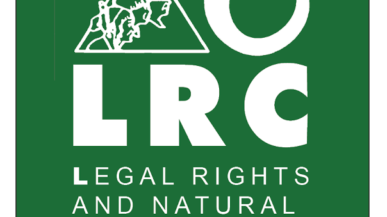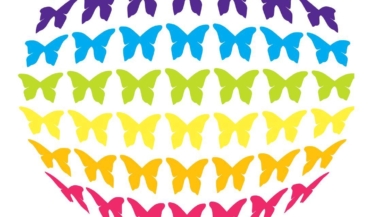Call for proposal
Voice Your Move!
Philippines Influencing Grant V-20150-PH-IF
-
Grant amount
Maximum €200,000Project Duration
18 - 33 MonthsClosing date
15 Jan 2021 -
-
-
Grants
Voice believes in periodically reviewing on matters that touch the five rightsholders groups around the three thematic areas. This year we embarked on an exciting journey of giving a closer look at Philippines. After an intense and enlightening process, we finalised on the Philippines Context Analysis that inspired this Calls for Proposals and others in the pipeline. Go ahead and give it a look before you look at this Call.
Voice Philippines is opening a call for proposals for Influencing Grants focused on the mobility of rightsholder groups.
Everyday, people move. Being able to physically move facilitates a broad umbrella of economic, social and political freedoms that are taken for granted but affect our work towards sustainable and inclusive societies. Barriers to mobility and movement have been underscored by the COVID-19 pandemic. Rightsholder groups experience the travel bans, lockdowns, and restrictions imposed by the government differently. Although these are necessary to limit the spread of the disease, they impose additional barriers to the social inclusion of the rightsholder.
As freedom of movement is a human right, Voice invites civil society organisations to help shape local to national discussion on the mobility and movement of rightsholder groups.
What are we looking for?
Voice is looking for projects or ideas to address the mobility of rightsholder groups in relation to the following thematic impact areas:
- Improved access to (productive) resources (e.g. finance, land, and water) and employment;
- Improved access to social services, in particular healthcare and education; and
- Space for political participation
Applications are open to locally registered organisations, consortiums, networks, or coalitions either led by or who work with the following rightsholders groups:
- Elderly/senior citizens and young people
- Indigenous groups and ethnic minorities
- Lesbian, gay, bisexual, transgender, queer, intersex communities
- Persons with disabilities
- Women facing exploitation, abuse, and/or violence
From the most recent Voice Context Analysis of the Philippines, some examples of issues related to mobility of rightsholders include:
- Elderly’s and Persons with Disabilities’ restricted access to essential healthcare services during community quarantines;
- Migrant returnees and their reintegration into their local communities;
- Indigenous communities who have been displaced from their ancestral lands;
- LGBTI persons facing discrimination when returning to their hometowns due to lack of employment opportunities in urban areas;
- Stateless women and youth who are limited in their movement due to a lack of documentation and basic citizenship rights.
For more ideas on what issues Voice prioritises on , please see the Voice Philippines Context Analysis 2020 or check out previous Influencing grants
Proposals need to be at least 18 – 33 months with a budget of up to €200,000 (approx. ₱10,600,000).
Voice recognises the importance of initiatives that respond to groups facing multiple layers of exclusion that cut across more than one rightsholders group. We have a strong preference for selecting projects that intend to work with more than one of the Voice rightsholder groups to address overlapping or cross-cutting challenges and promote inter-and/or intra-group solidarity.
What do we mean by Influencing?
Based on the Voice Theory of Change, Influencing is the process where rightsholders and their representatives will use a range of lobby and advocacy tools to influence individuals, families, communities, private business, religious leaders, (social) media, and other decision makers’ policies, practices, and behaviours. Ultimately, the combined interventions will lead to rightsholders:
- claiming their rights as equal citizens;
- having meaningful participation in political, economic, and social spheres, and;
- accessing services and resources.
Influencing should happen and move across multiple levels from individuals to communities to (sub-) national to international. Actions at the individual level can reinforce actions at other levels.
Influencing grant targets organisations and networks to strengthen their lobby and advocacy capacities and amplify the voices of rightsholder groups.
Based on the results of previous Influencing Grants, Voice offers some tips for interested applicants:
- Prioritise the key issues to be addressed. These should be directly linked to the needs of the rightsholder groups, and contextualised to the situation of the target areas.
- Start small and be specific. There might be a tendency to think about influencing in the national level, but lobbying and advocacy can start in small social units such as the family and the community. Successful influencing grants strengthen the capacity of the rightsholder groups, and build a more supportive and inclusive community whilst advocating with decision makers.
- Describe how rightsholder groups will meaningfully engage in the project. Voice follows the principle of nothing about us without us and we aim to shift roles of rightsholder groups from beneficiaries to active partners in realising sustainable and inclusive development.
- Articulate clearly your previous efforts related to the project (direct or indirect). This is necessary in showing your commitment in achieving the project goals.
- Review the budget utilisation and be efficient. You do not have to max out the prescribed budget ceiling. It is recommended that you propose a budget your organisation can manage well.
- Explore innovative ways to do influencing and advocacy. You can borrow approaches from other social movements and apply it to your context. We encourage new and bold ideas!
Who can apply?
Influencing Grants are open to:
- Locally registered non-profit Filipino organisations;
- Networks, consortium, and coalitions with a locally registered non–profit Filipino organisations as the lead applicant
- Locally registered Filipino social enterprises
All applicants must be rightsholder-led. An organisation (formal/informal) is rightsholder-led when it is governed and managed by members of the rightsholder-group(s). The principle of “Nothing About Us Without Us” guides their work. If the rightsholders do not play roles in the governance and management of the organisation, the proposal needs to describe how the rightsholder groups are fully involved in the conceptualisation, implementation, monitoring, and evaluation of the project.
International organisations cannot be a lead applicant but can team up as a co-applicant in the case of consortium applications.
What we won’t fund
- Organisations with an annual turnover of over €2 million.
- An application where the grant awarded from Voice is more than 50% of the total annual income of the applicant organisation.
- The way to calculate this is to divide the requested amount by number of years the project will be implemented. The result will then be divided by the annual income.
- If the result of this calculation is over 50% you can either reduce the requested amount or team up as part of a consortium where you can add up the annual incomes
- Funding of commercial services, investment or other commercial activities.
Practicing the Values of Voice
Voice believes in the principle of Nothing About Us Without Us. In practice, this means Voice rightsholder groups need to be at the centre of any effort. They must be involved in the conceptualisation, planning, and implementation of any grant. They are equal partners in any consortium, network, or coalition, playing key governance and leadership roles.
Linking and Learning
Linking and Learning is at the heart and soul of Voice. All grantees are expected to participate in facilitated meetings and gatherings enabling the exchange of ideas and learnings from each other’s experiences. Applicants must demonstrate in their proposals how they will identify, document, and share their learnings as they implement their project. These may come in many forms such as blog posts, videos, photo essay or audio recordings.
Voice values diversity and inclusion. All grantees are expected to be able to interact with and learn from a diverse group of people coming from different backgrounds, orientations, and experiences. Interested applicants must be willing to work in a diverse community, which includes representatives from all of the Voice rightsholder groups.
From the numerous applications received the following grantees have been successful as part of this Call for Proposals. If you like to join Voice please see the current list of open Calls for ProposalsPhilippines![Mitigating the Minoritization of non-Moro Indigenous Peoples in the Bangsamoro by Harnessing an Enabling Policy Environment for Indigenous Peoples’ Rights]()
Mitigating the Minoritization of non-Moro Indigenous Peoples in the Bangsamoro by Harnessing an Enabling Policy Environment for Indigenous Peoples’ Rights
Legal Rights and Natural Resources Center, Inc. (LRC)Philippines![Building Rainbow Communities: Organising LGBTQI Filipinos in Rural and Urban Poor]()
-
About
Voice believes in periodically reviewing on matters that touch the five rightsholders groups around the three thematic areas. This year we embarked on an exciting journey of giving a closer look at Philippines. After an intense and enlightening process, we finalised on the Philippines Context Analysis that inspired this Calls for Proposals and others in the pipeline. Go ahead and give it a look before you look at this Call.
Voice Philippines is opening a call for proposals for Influencing Grants focused on the mobility of rightsholder groups.
Everyday, people move. Being able to physically move facilitates a broad umbrella of economic, social and political freedoms that are taken for granted but affect our work towards sustainable and inclusive societies. Barriers to mobility and movement have been underscored by the COVID-19 pandemic. Rightsholder groups experience the travel bans, lockdowns, and restrictions imposed by the government differently. Although these are necessary to limit the spread of the disease, they impose additional barriers to the social inclusion of the rightsholder.
As freedom of movement is a human right, Voice invites civil society organisations to help shape local to national discussion on the mobility and movement of rightsholder groups.
What are we looking for?
Voice is looking for projects or ideas to address the mobility of rightsholder groups in relation to the following thematic impact areas:
- Improved access to (productive) resources (e.g. finance, land, and water) and employment;
- Improved access to social services, in particular healthcare and education; and
- Space for political participation
Applications are open to locally registered organisations, consortiums, networks, or coalitions either led by or who work with the following rightsholders groups:
- Elderly/senior citizens and young people
- Indigenous groups and ethnic minorities
- Lesbian, gay, bisexual, transgender, queer, intersex communities
- Persons with disabilities
- Women facing exploitation, abuse, and/or violence
From the most recent Voice Context Analysis of the Philippines, some examples of issues related to mobility of rightsholders include:
- Elderly’s and Persons with Disabilities’ restricted access to essential healthcare services during community quarantines;
- Migrant returnees and their reintegration into their local communities;
- Indigenous communities who have been displaced from their ancestral lands;
- LGBTI persons facing discrimination when returning to their hometowns due to lack of employment opportunities in urban areas;
- Stateless women and youth who are limited in their movement due to a lack of documentation and basic citizenship rights.
For more ideas on what issues Voice prioritises on , please see the Voice Philippines Context Analysis 2020 or check out previous Influencing grants
Proposals need to be at least 18 – 33 months with a budget of up to €200,000 (approx. ₱10,600,000).
Voice recognises the importance of initiatives that respond to groups facing multiple layers of exclusion that cut across more than one rightsholders group. We have a strong preference for selecting projects that intend to work with more than one of the Voice rightsholder groups to address overlapping or cross-cutting challenges and promote inter-and/or intra-group solidarity.
What do we mean by Influencing?
Based on the Voice Theory of Change, Influencing is the process where rightsholders and their representatives will use a range of lobby and advocacy tools to influence individuals, families, communities, private business, religious leaders, (social) media, and other decision makers’ policies, practices, and behaviours. Ultimately, the combined interventions will lead to rightsholders:
- claiming their rights as equal citizens;
- having meaningful participation in political, economic, and social spheres, and;
- accessing services and resources.
Influencing should happen and move across multiple levels from individuals to communities to (sub-) national to international. Actions at the individual level can reinforce actions at other levels.
Influencing grant targets organisations and networks to strengthen their lobby and advocacy capacities and amplify the voices of rightsholder groups.
Based on the results of previous Influencing Grants, Voice offers some tips for interested applicants:
- Prioritise the key issues to be addressed. These should be directly linked to the needs of the rightsholder groups, and contextualised to the situation of the target areas.
- Start small and be specific. There might be a tendency to think about influencing in the national level, but lobbying and advocacy can start in small social units such as the family and the community. Successful influencing grants strengthen the capacity of the rightsholder groups, and build a more supportive and inclusive community whilst advocating with decision makers.
- Describe how rightsholder groups will meaningfully engage in the project. Voice follows the principle of nothing about us without us and we aim to shift roles of rightsholder groups from beneficiaries to active partners in realising sustainable and inclusive development.
- Articulate clearly your previous efforts related to the project (direct or indirect). This is necessary in showing your commitment in achieving the project goals.
- Review the budget utilisation and be efficient. You do not have to max out the prescribed budget ceiling. It is recommended that you propose a budget your organisation can manage well.
- Explore innovative ways to do influencing and advocacy. You can borrow approaches from other social movements and apply it to your context. We encourage new and bold ideas!
Who can apply?
Influencing Grants are open to:
- Locally registered non-profit Filipino organisations;
- Networks, consortium, and coalitions with a locally registered non–profit Filipino organisations as the lead applicant
- Locally registered Filipino social enterprises
All applicants must be rightsholder-led. An organisation (formal/informal) is rightsholder-led when it is governed and managed by members of the rightsholder-group(s). The principle of “Nothing About Us Without Us” guides their work. If the rightsholders do not play roles in the governance and management of the organisation, the proposal needs to describe how the rightsholder groups are fully involved in the conceptualisation, implementation, monitoring, and evaluation of the project.
International organisations cannot be a lead applicant but can team up as a co-applicant in the case of consortium applications.
What we won’t fund
- Organisations with an annual turnover of over €2 million.
- An application where the grant awarded from Voice is more than 50% of the total annual income of the applicant organisation.
- The way to calculate this is to divide the requested amount by number of years the project will be implemented. The result will then be divided by the annual income.
- If the result of this calculation is over 50% you can either reduce the requested amount or team up as part of a consortium where you can add up the annual incomes
- Funding of commercial services, investment or other commercial activities.
Practicing the Values of Voice
Voice believes in the principle of Nothing About Us Without Us. In practice, this means Voice rightsholder groups need to be at the centre of any effort. They must be involved in the conceptualisation, planning, and implementation of any grant. They are equal partners in any consortium, network, or coalition, playing key governance and leadership roles.
Linking and Learning
Linking and Learning is at the heart and soul of Voice. All grantees are expected to participate in facilitated meetings and gatherings enabling the exchange of ideas and learnings from each other’s experiences. Applicants must demonstrate in their proposals how they will identify, document, and share their learnings as they implement their project. These may come in many forms such as blog posts, videos, photo essay or audio recordings.
Voice values diversity and inclusion. All grantees are expected to be able to interact with and learn from a diverse group of people coming from different backgrounds, orientations, and experiences. Interested applicants must be willing to work in a diverse community, which includes representatives from all of the Voice rightsholder groups.
-
How to apply?
This Call for Proposals is closed and no longer accepting applications. Come back here at a later stage to learn about the grantees that have been selected in this Call for Proposals.
The current open Calls for Proposals can be found here.
-
This Call for Proposals is closed and no longer accepting applications. Come back here at a later stage to learn about the grantees that have been selected in this Call for Proposals.
The current open Calls for Proposals can be found here.
-
From the numerous applications received the following grantees have been successful as part of this Call for Proposals. If you like to join Voice please see the current list of open Calls for Proposals
-
Philippines
![Mitigating the Minoritization of non-Moro Indigenous Peoples in the Bangsamoro by Harnessing an Enabling Policy Environment for Indigenous Peoples’ Rights]()
Mitigating the Minoritization of non-Moro Indigenous Peoples in the Bangsamoro by Harnessing an Enabling Policy Environment for Indigenous Peoples’ Rights
Legal Rights and Natural Resources Center, Inc. (LRC) -
Philippines
![Building Rainbow Communities: Organising LGBTQI Filipinos in Rural and Urban Poor]()
-







